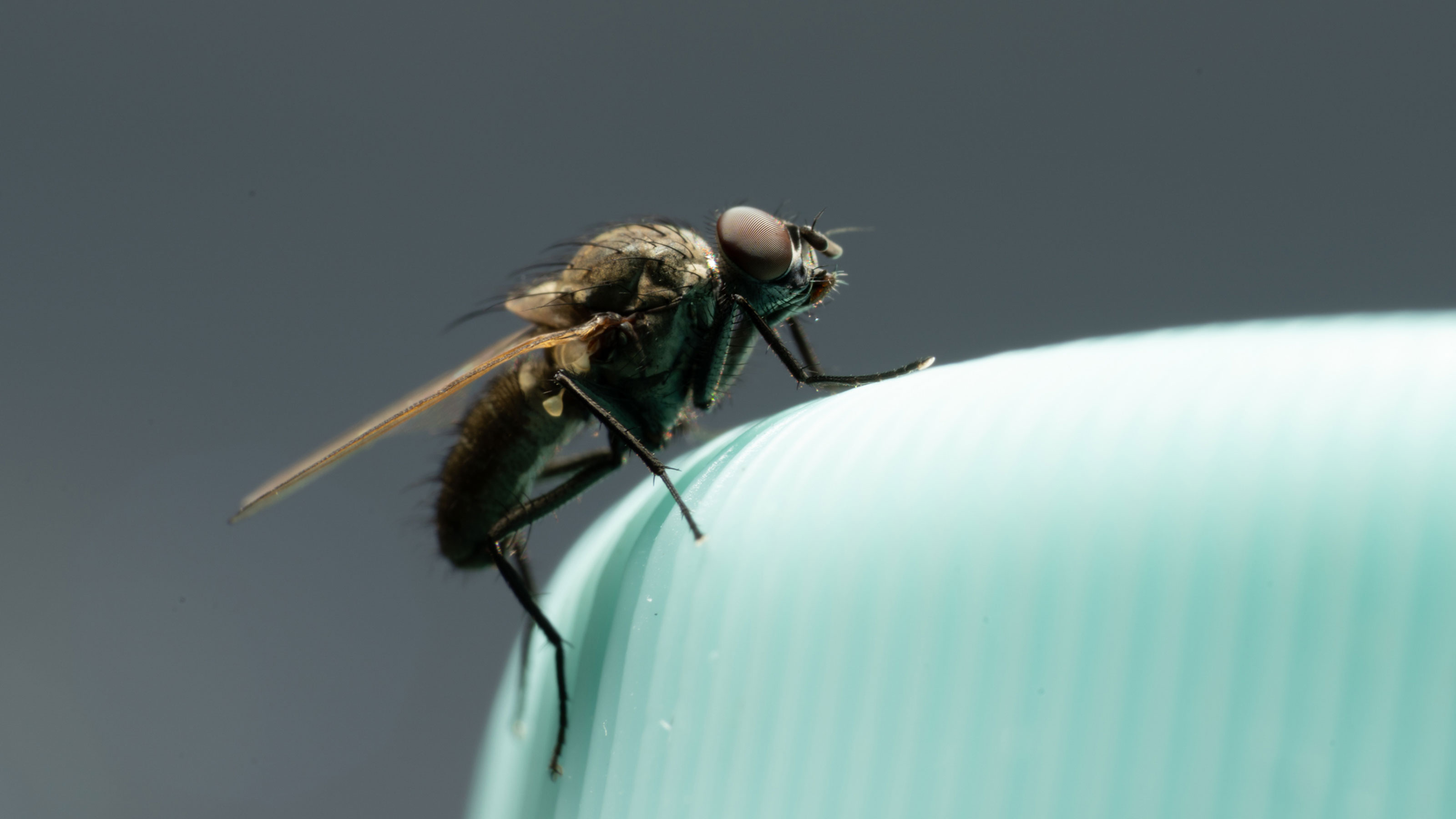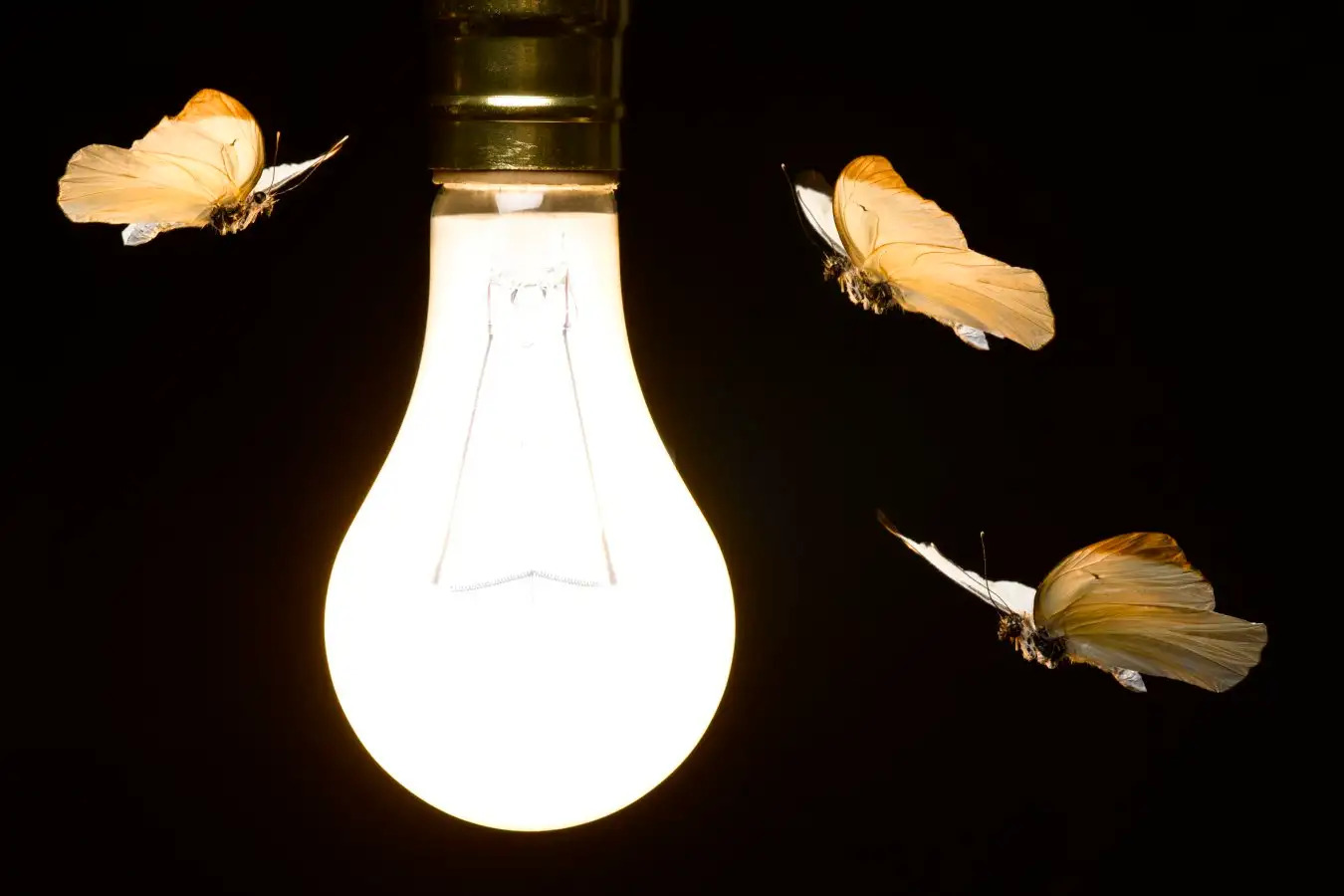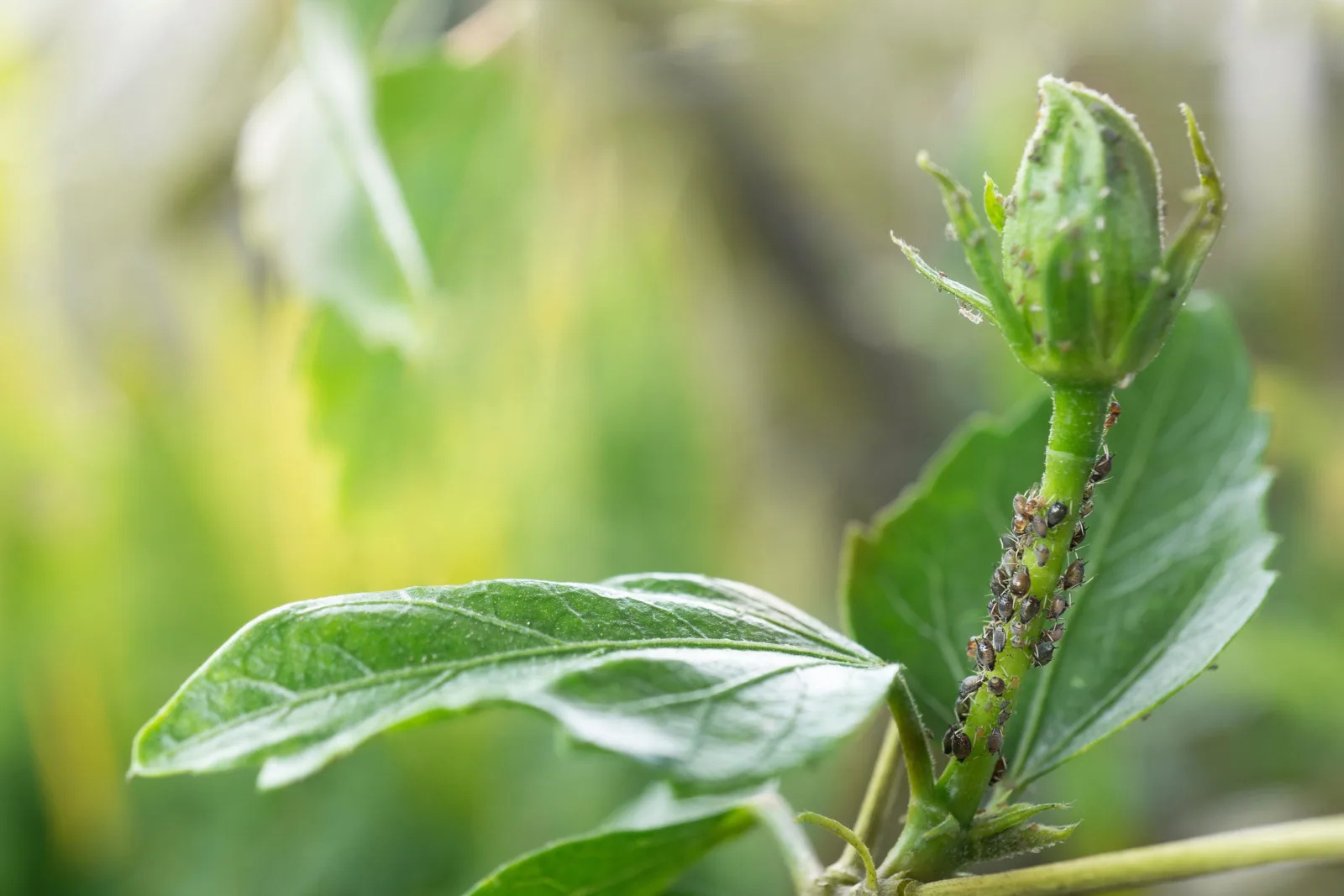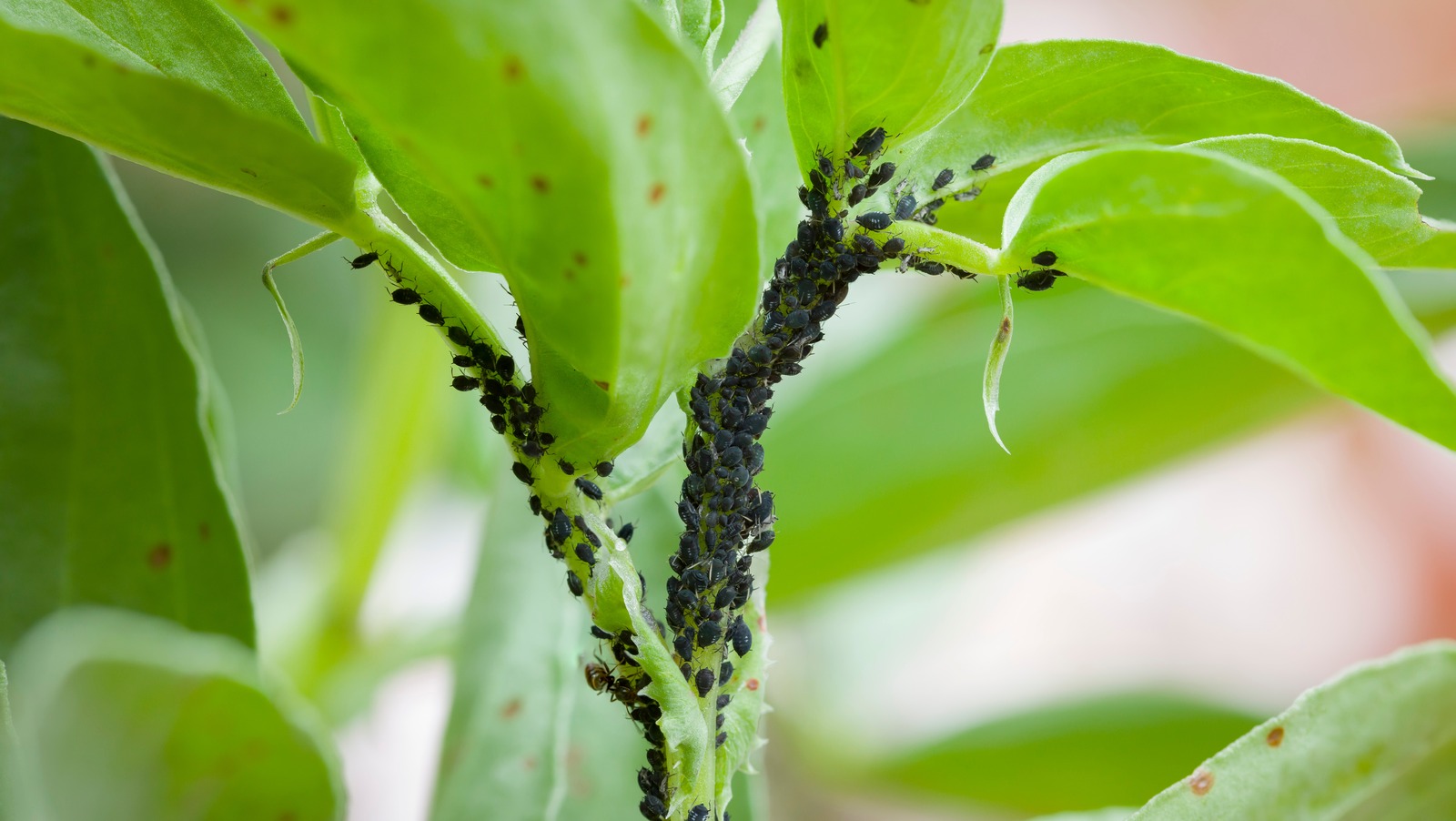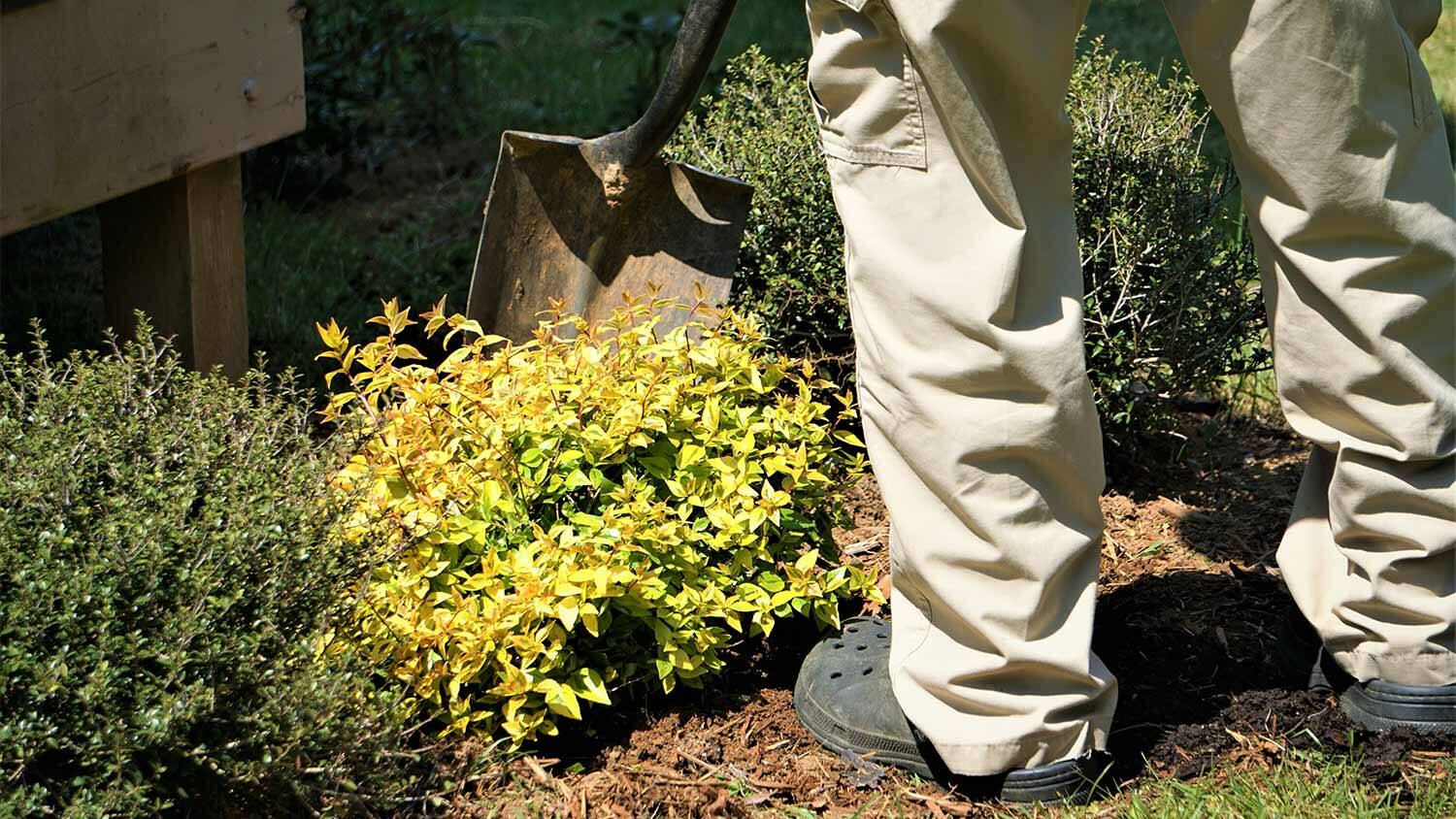Home>Gardening Tips and Tricks>Problem Solving>How To Get Rid Of Insects Naturally
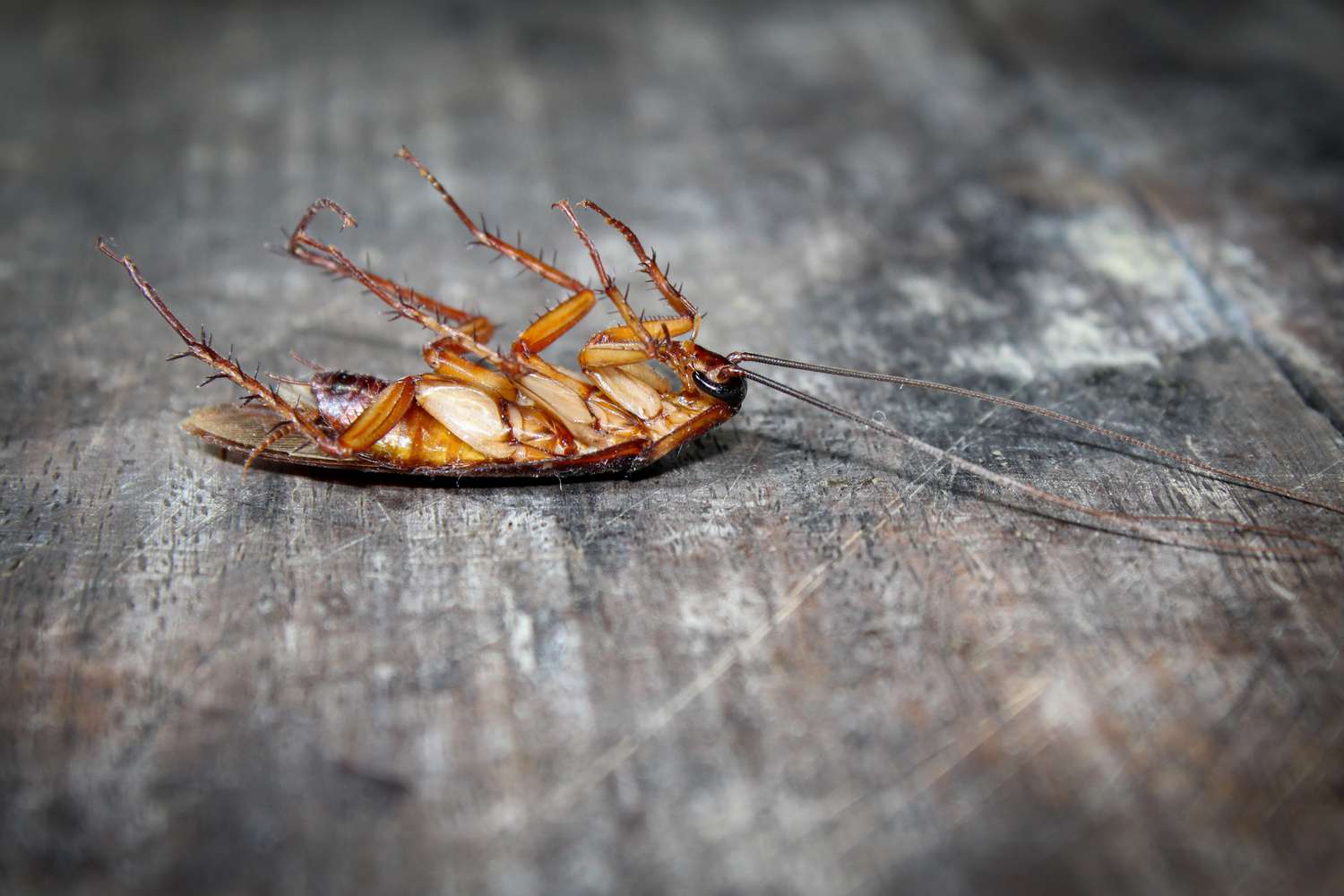

Problem Solving
How To Get Rid Of Insects Naturally
Modified: January 22, 2024
Discover effective and natural solutions for solving insect problems with our expert tips and techniques. Learn how to get rid of insects naturally and protect your home and family.
(Many of the links in this article redirect to a specific reviewed product. Your purchase of these products through affiliate links helps to generate commission for Chicagolandgardening.com, at no extra cost. Learn more)
Table of Contents
Introduction
Welcome to our comprehensive guide on getting rid of insects naturally! Insects are a common nuisance in households, often invading our living spaces and causing various problems. While many people resort to chemical insecticides to eliminate these pests, there are safer and more eco-friendly alternatives available.
In this article, we will explore the benefits of natural insect control and provide you with practical methods to tackle common household insects using non-toxic solutions. Whether you are dealing with ants, mosquitoes, flies, or cockroaches, you’ll find effective and environmentally friendly strategies to rid your home of these pests.
Using natural methods to control insects not only helps protect your family and pets from exposure to harmful chemicals but also contributes to a healthier environment. It is an excellent way to maintain a balance in the ecosystem, ensuring the safety and well-being of both humans and nature.
Throughout this guide, we will discuss preventive measures, natural repellents, essential oils, homemade traps, and even natural insecticides. By combining these strategies, you’ll be equipped with effective tools to combat insect infestations without compromising your health or the environment.
So, if you’re ready to take control of your insect problem the natural way, let’s dive into the world of natural insect control and discover how to banish those pesky critters from your home once and for all!
Benefits of Natural Insect Control
Choosing natural insect control methods over chemical pesticides offers several advantages. Let’s explore some of the key benefits:
- Health and Safety: One of the primary benefits of natural insect control is the reduced risk to human health and safety. Chemical pesticides can contain toxins that can be harmful if ingested or inhaled. By using natural methods, you can avoid exposing yourself and your family to potentially hazardous substances.
- Environmental Friendliness: Natural insect control methods are eco-friendly. They do not harm beneficial insects, pollinators, or other wildlife in your surroundings. This helps to maintain a healthy and balanced ecosystem.
- Sustainable Solution: Utilizing natural insect control techniques promotes long-term pest management. Instead of simply killing insects, these methods focus on deterring them or disrupting their reproductive cycles. This approach ensures a more sustainable and lasting solution to your insect problems.
- Cost-effective: Natural insect control methods are often more cost-effective compared to conventional insecticides that need frequent purchases. Many of the ingredients used in homemade natural repellents or traps are readily available and affordable, making them a budget-friendly option.
- Versatility: Natural insect control methods are versatile and can be applied in various settings. Whether you are dealing with pests in your home, garden, or even camping, you can find suitable natural solutions that are effective in all these environments.
- Reduced Resistance: Insects can develop resistance to chemical pesticides over time, rendering them ineffective. Natural methods, on the other hand, have a lower risk of resistance development, making them a more reliable long-term solution.
- Peace of Mind: Using natural insect control methods provides peace of mind, knowing that you are not exposing yourself, your loved ones, or the environment to harmful chemicals. By choosing a natural approach, you can tackle insect problems without compromising your well-being.
By opting for natural insect control, you can protect the health and safety of your family, contribute to a healthier environment, and maintain a sustainable solution to your insect problems. Now let’s move on to identifying common household insects and how to prevent them from infesting your home!
Identifying Common Household Insects
Before we dive into the methods of natural insect control, it is important to be able to identify the common household insects that you may encounter. Knowing their characteristics and habits can help you determine the most effective approach to deal with them. Here are a few common household insects you should be familiar with:
- Ants: Ants are small insects that form colonies and are known for their organized behavior. They can enter your home in search of food and water, usually leaving a trail of pheromones for others to follow.
- Mosquitoes: Mosquitoes are winged insects that are notorious for their itchy bites. They are most active during the warmer months and breed in standing water.
- Flies: Flies are flying insects that can be a nuisance in your home. They are attracted to food, garbage, and organic matter, and can carry disease-causing bacteria.
- Cockroaches: Cockroaches are nocturnal insects that thrive in dark, warm, and moist environments. They can contaminate food and surfaces and are known to trigger allergies and asthma.
- Spiders: Spiders are arachnids that are typically found in corners, attics, and basements. While most spiders are harmless, some species can be venomous, so caution is advised.
- Bed Bugs: Bed bugs are small, flat insects that infest mattresses, furniture, and other areas where people sleep. They feed on blood and their bites can cause skin irritation and allergic reactions.
- Silverfish: Silverfish are small, wingless insects that prefer damp, dark areas. They are attracted to starchy foods, paper, and other organic materials.
Understanding the habits and preferences of these common household insects can help you in determining the most effective natural control methods. Each insect may require a different approach, so it’s important to accurately identify the pest before moving forward with your pest control plan.
Now that you know how to identify common household insects, let’s proceed to the next section, where we will discuss effective prevention methods to keep these pests out of your home!
Prevention Methods
Preventing insects from entering your home is the first line of defense in keeping your living space insect-free. By implementing these simple prevention methods, you can minimize the chances of an infestation:
- Seal Entry Points: Inspect your home for any gaps, cracks, or holes in doors, windows, and walls. Seal these entry points using caulk or weatherstripping to prevent insects from gaining access to your home.
- Maintain a Clean Environment: Regularly clean your home, paying special attention to areas where insects are commonly found, such as the kitchen and bathroom. Keep countertops, floors, and other surfaces free of food debris and spills.
- Proper Food Storage: Store food in airtight containers to prevent attracting ants, flies, and other pests. Dispose of garbage promptly in tightly sealed bins and keep outdoor garbage areas clean.
- Eliminate Standing Water: Mosquitoes breed in stagnant water, so be sure to empty any containers that may collect water, such as buckets, flower pots, and gutters. Keep your drains clear to prevent water buildup.
- Regularly Trim Vegetation: Trim bushes, trees, and shrubs near your home to minimize potential entry points for insects. Overhanging branches or dense vegetation can serve as bridges for ants, spiders, and other pests to access your home.
- Use Window Screens: Install screens on windows and doors to prevent flies, mosquitoes, and other flying insects from entering your home while still allowing fresh air to circulate.
- Pet Care: Regularly groom and inspect your pets for fleas, ticks, and other pests. Use pet-safe repellents and consult with your veterinarian for additional preventive measures.
- Remove Clutter: Reduce clutter in your home as it provides hiding places for insects. Eliminate unnecessary items and organize storage areas to make it less hospitable for pests.
Implementing these prevention methods will significantly reduce the chances of an insect infestation in your home. By maintaining a cleaner and more organized living space while sealing off potential entry points, you are taking proactive steps towards a pest-free environment.
Now that you understand the importance of prevention, let’s move on to exploring effective natural insect repellents that can help keep bugs at bay!
Natural Insect Repellents
When it comes to keeping insects away, natural repellents can be highly effective and safe alternatives to chemical sprays. Here are some natural insect repellents that you can use to ward off those pesky bugs:
- Citronella: Citronella oil is derived from the leaves of the citronella plant and is known for its mosquito-repellent properties. You can find citronella candles, torches, or essential oil to create a bug-free zone in your outdoor space.
- Lemon Eucalyptus: Lemon eucalyptus oil is a natural repellent that is effective against mosquitoes and ticks. You can purchase commercial products containing this oil or make your own spray by diluting lemon eucalyptus essential oil with a carrier oil such as coconut or jojoba oil.
- Peppermint: Peppermint oil is a versatile repellent that can ward off ants, spiders, and mosquitoes. Create a spray by mixing water and a few drops of peppermint essential oil, then apply it to areas where you want to repel insects.
- Lavender: Lavender essential oil is not only known for its calming scent but also for repelling mosquitoes, moths, and flies. Use lavender sachets or spray lavender oil mixed with water in your home to keep insects away.
- Cloves: Cloves have a strong scent that repels insects. Place whole cloves in pantry shelves or make a homemade repellent by boiling cloves in water and using the infused liquid as a spray.
- Tea Tree Oil: Tea tree oil is a powerful essential oil with natural insect-repellent properties. It can be effective against ants, cockroaches, mosquitoes, and other pests. Mix a few drops of tea tree oil with water and wipe down surfaces or spray it around entry points and infested areas.
These natural repellents are safer alternatives to chemical-based sprays and can effectively deter insects from entering your home or outdoor spaces. Remember to always follow the instructions and guidelines for proper usage and dilution ratios to ensure their effectiveness.
Now that you’re armed with natural insect repellents, let’s explore the use of essential oils for insect control in the next section!
Essential Oils for Insect Control
Essential oils offer a natural and fragrant way to repel insects from your home. Here are some essential oils known for their insect control properties:
- Peppermint: Peppermint oil is not only a great insect repellent but also has the ability to deter rodents. Its strong scent is disliked by spiders, ants, and mosquitoes.
- Lemongrass: Lemongrass oil is famous for repelling mosquitoes, ticks, and other biting insects. Its refreshing citrus scent also helps to create a pleasant environment.
- Cedarwood: Cedarwood oil is effective against fleas, ticks, and moths. It can be used in closets or drawers to repel clothes moths and keep your fabrics safe.
- Eucalyptus: Eucalyptus oil is known for its ability to repel mosquitoes and flies. It contains a compound called citronellal, which is also found in citronella oil.
- Tea Tree: Tea tree oil has antifungal and antiseptic properties, making it effective against pests like ants and cockroaches. It can be used as a natural alternative to chemical-based sprays in general pest control.
- Lavender: Lavender oil not only has a calming effect on humans but also repels mosquitoes, flies, and moths. It can be used to create a relaxing and insect-free environment.
To use essential oils for insect control, you can create a DIY spray by diluting a few drops of the essential oil of your choice with water in a spray bottle. Alternatively, you can add a few drops onto cotton balls and place them in areas where insects are commonly found.
It’s important to note that essential oils should be used with caution, especially around pets and children, as some oils can be toxic if ingested or used in excessive amounts. Always follow the recommended dilution ratios and safety guidelines provided by the manufacturer.
Now that you’re familiar with essential oils for insect control, let’s explore homemade insect traps as another effective method to get rid of insects naturally!
Homemade Insect Traps
Homemade insect traps are a cost-effective and chemical-free way to capture and eliminate insects from your home. Here are a few simple and effective DIY traps you can try:
- Fruit Fly Trap: One common household pest is the fruit fly. To make a fruit fly trap, take a small jar and fill it halfway with apple cider vinegar. Cover the top with plastic wrap and secure it with a rubber band. Poke several small holes in the plastic wrap. Fruit flies will be attracted to the vinegar and get trapped inside the jar.
- Sticky Trap: For crawling insects like ants, make a sticky trap using a shallow container and a sticky adhesive substance. Spread the adhesive on the bottom of the container and place it in areas where ants are active. The ants will be attracted to the trap and get stuck.
- Beer Trap: Slugs and snails can be problematic in gardens. Bury a small container, such as a yogurt cup, into the soil near affected plants. Fill it halfway with beer, which will attract slugs and snails. They will crawl in and drown in the beer.
- DIY Mosquito Trap: To reduce mosquito populations around your outdoor space, create a DIY mosquito trap. Cut the top off a plastic bottle and invert it, placing it inside the bottom half. Add a mixture of sugar, water, and yeast to the bottom of the bottle as bait. Mosquitoes will be lured into the trap and unable to escape.
- Soda Bottle Wasp Trap: To get rid of wasps, cut the top third of a plastic soda bottle and flip it upside down. Insert it into the bottom part of the bottle, creating a funnel-like shape. Place a sweet liquid, like fruit juice or soda, in the bottom to attract the wasps. They will enter the trap but will struggle to find their way out.
These homemade insect traps can be a great addition to your natural pest control arsenal. Remember to discard the captured insects properly and refresh the traps regularly to maintain their effectiveness.
Now that you’ve learned how to make homemade insect traps, let’s move on to discussing natural insecticides as another option for controlling insects naturally!
Natural Insecticides
When dealing with severe insect infestations, natural insecticides can provide an effective solution without the use of harsh chemicals. These natural alternatives can help combat pests while minimizing harm to the environment. Here are a few examples:
- Diatomaceous Earth: Diatomaceous earth is a naturally occurring powder made from fossilized algae. It acts as a desiccant, dehydrating and killing insects on contact. Sprinkle diatomaceous earth in areas where insects are present, such as cracks, crevices, and entry points.
- Neem Oil: Neem oil is derived from the neem tree and is known for its insecticidal properties. It disrupts the reproductive system of insects, ultimately leading to their demise. Dilute neem oil in water and spray it on affected plants or surfaces to control pests.
- Pyrethrin: Pyrethrin is an insecticide derived from the flowers of certain chrysanthemum species. It attacks the nervous system of insects, causing paralysis and death. It can be found in commercial products or you can make your own spray by diluting pyrethrin powder in water.
- Boric Acid: Boric acid is a natural mineral compound that acts as a stomach poison for insects. It can be used to control ants, cockroaches, and silverfish. Apply boric acid in areas where pests travel, such as along baseboards, cracks, and crevices.
- Soap-based Insecticides: Soap-based insecticides, such as insecticidal soaps or homemade solutions using liquid dish soap, can be effective against soft-bodied insects like aphids, mites, and whiteflies. The soap suffocates the pests and disrupts their cellular membranes.
When using natural insecticides, it’s essential to follow the instructions and guidelines for proper application and safety. Be mindful of the potential impact on beneficial insects, as some natural insecticides can harm certain beneficial species as well.
Remember that natural insecticides should be used as a targeted solution for specific pest problems and not as a general preventive measure. Integrated pest management techniques, such as proper sanitation, exclusion, and preventive practices, should be the first line of defense in pest control.
Now that you’re familiar with natural insecticides, let’s move on to the final section on how to maintain a pest-free environment to ensure long-term success in keeping insects at bay!
Maintaining a Pest-Free Environment
To effectively control and prevent insect infestations, it is important to maintain a pest-free environment in and around your home. By following these practices, you can minimize the risk of pests taking up residence in your living space:
- Regular Cleaning: Keeping your home clean is crucial in preventing pests. Vacuum regularly, sweep up food crumbs, and wipe down surfaces to remove potential food sources that attract insects.
- Gardening Maintenance: If you have a garden or outdoor space, regularly inspect and maintain it. Remove weeds, trim overgrown vegetation, and dispose of fallen leaves and debris which can serve as hiding spots for pests.
- Proper Food Storage: Store food in sealed containers to deter ants, cockroaches, and other pantry pests. Keep pet food in airtight containers and clean up any spills or crumbs promptly.
- Moisture Control: Moisture attracts pests like termites, mosquitoes, and silverfish. Fix any water leaks, ensure proper drainage, and use dehumidifiers in humid areas to reduce excessive moisture.
- Regular Inspections: Conduct routine inspections of your home to identify any signs of pest activity. Look for entry points, nests, or droppings. Respond promptly to any infestation to prevent it from worsening.
- Sealing Cracks and Openings: Seal any cracks, gaps, or openings in walls, windows, and doors. This will deter pests from entering your home and gives them fewer opportunities to find shelter.
- Professional Pest Control: If you have a persistent or severe infestation, consider seeking the assistance of professional pest control services. They can employ targeted and eco-friendly methods to eliminate the pests and provide recommendations for long-term prevention.
Maintaining a pest-free environment requires consistent effort and vigilance. By practicing good sanitation, addressing any underlying issues that may attract pests, and utilizing natural pest control methods, you can create an environment that is inhospitable to insects.
Remember, preventing pests from entering your home is always easier than dealing with an infestation. By implementing these strategies, you can reduce the likelihood of encountering pests and enjoy a pest-free living space.
Now that you have learned various methods for natural insect control and how to maintain a pest-free environment, you are well-equipped to tackle any insect problems that may arise. By using these eco-friendly approaches, you can enjoy a healthier and more harmonious living space while minimizing the impact on the environment.
Conclusion
Insects can be a persistent nuisance in our homes, but there are effective and eco-friendly ways to control and eliminate them. By adopting natural insect control methods, we can protect our health, safeguard the environment, and maintain a pest-free living space.
We explored the benefits of natural insect control, including the reduced risk to human health, environmental friendliness, sustainability, cost-effectiveness, and versatility. We also discussed the importance of identifying common household insects to determine the most suitable control methods.
Prevention is key in keeping insects at bay, and we learned about sealing entry points, maintaining cleanliness, proper food storage, eliminating standing water, and other preventive measures. Natural insect repellents like citronella, lavender, and peppermint oils can be effective in deterring insects, while essential oils offer versatile options for natural insect control.
Homemade insect traps provide affordable and chemical-free solutions to capture and eliminate pests, and natural insecticides such as diatomaceous earth, neem oil, and boric acid offer effective alternatives to chemical pesticides. Lastly, maintaining a pest-free environment through regular cleaning, moisture control, sealing cracks, and professional pest control can help prevent infestations.
By incorporating these natural insect control methods into our daily routines, we can create a healthier and safer living space for ourselves and our families. Remember that a pest-free home is not an unattainable goal, and with a little effort and knowledge, we can successfully keep insects at bay while minimizing our impact on the environment.
So, embrace the power of natural insect control and bid farewell to pesky insects, creating a harmonious and pest-free environment for a more enjoyable and comfortable living experience.
